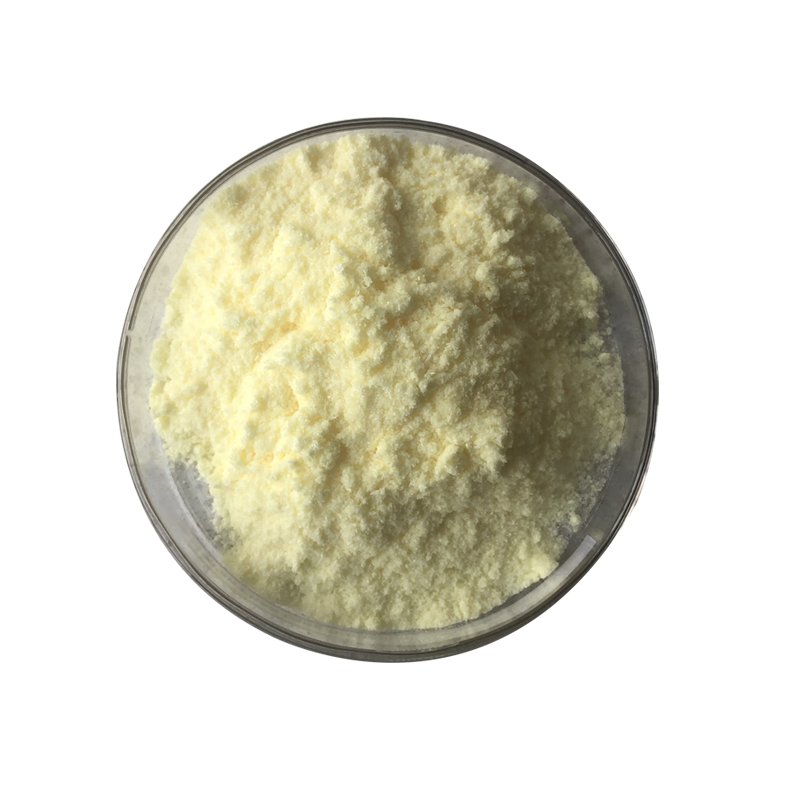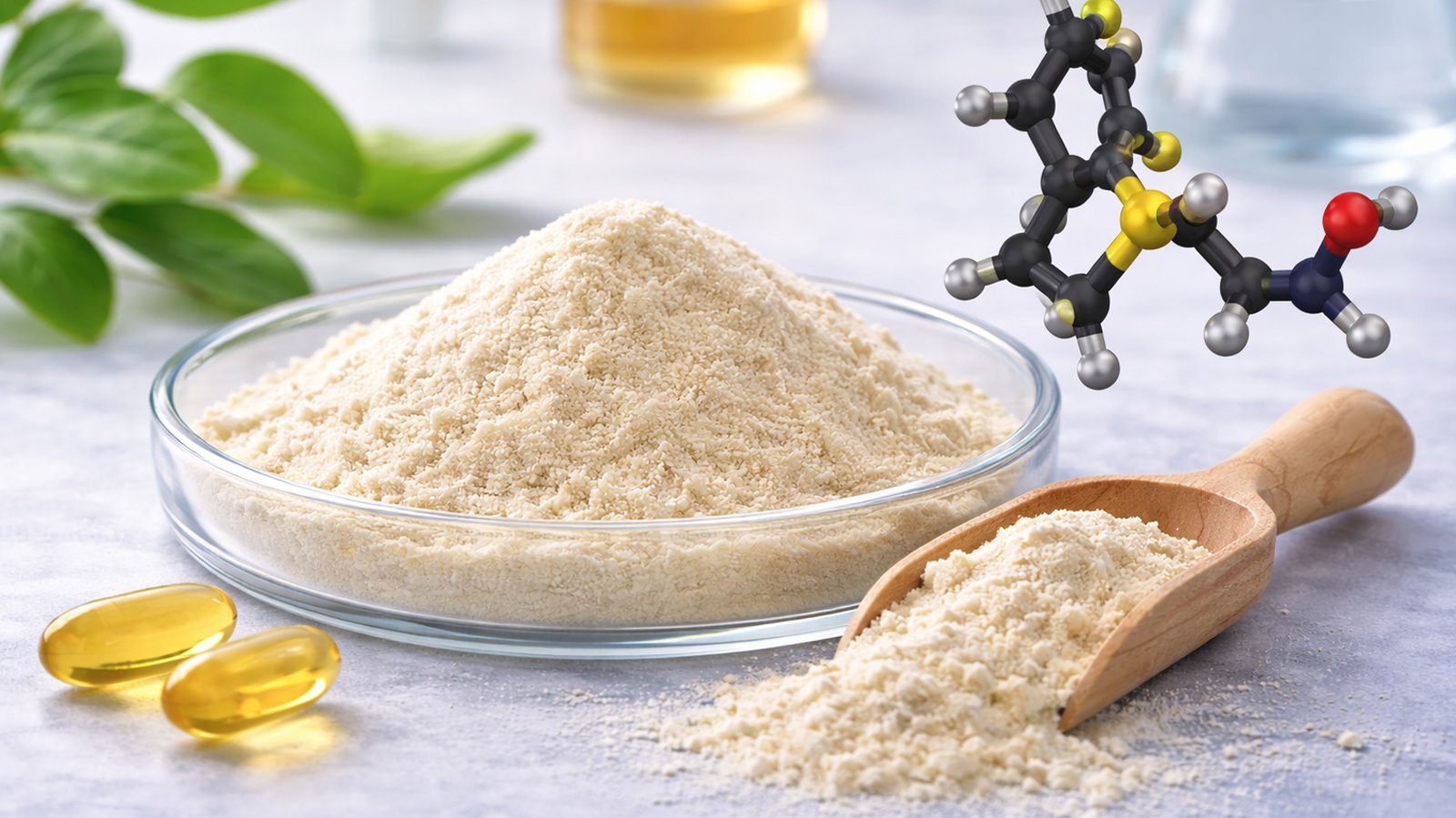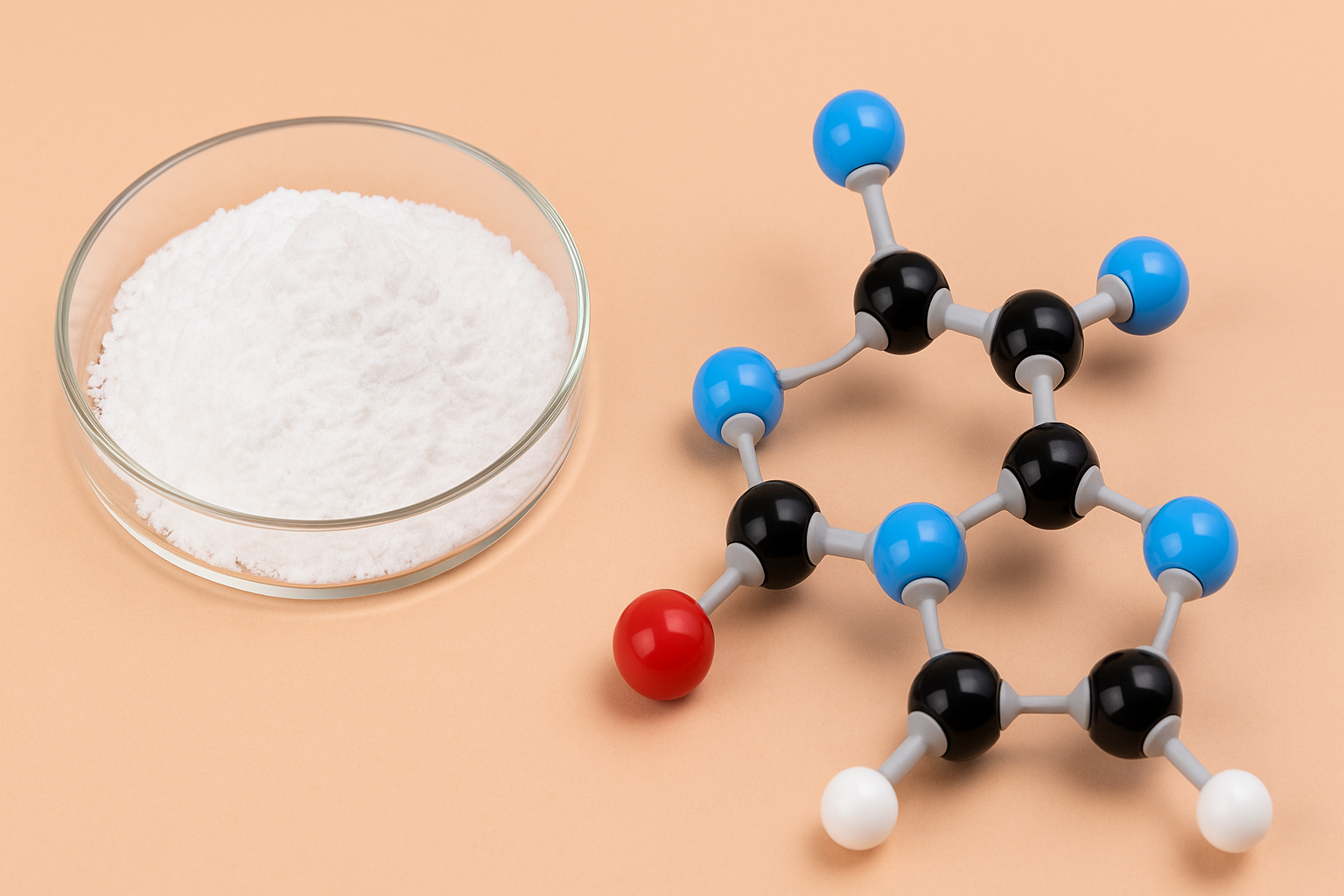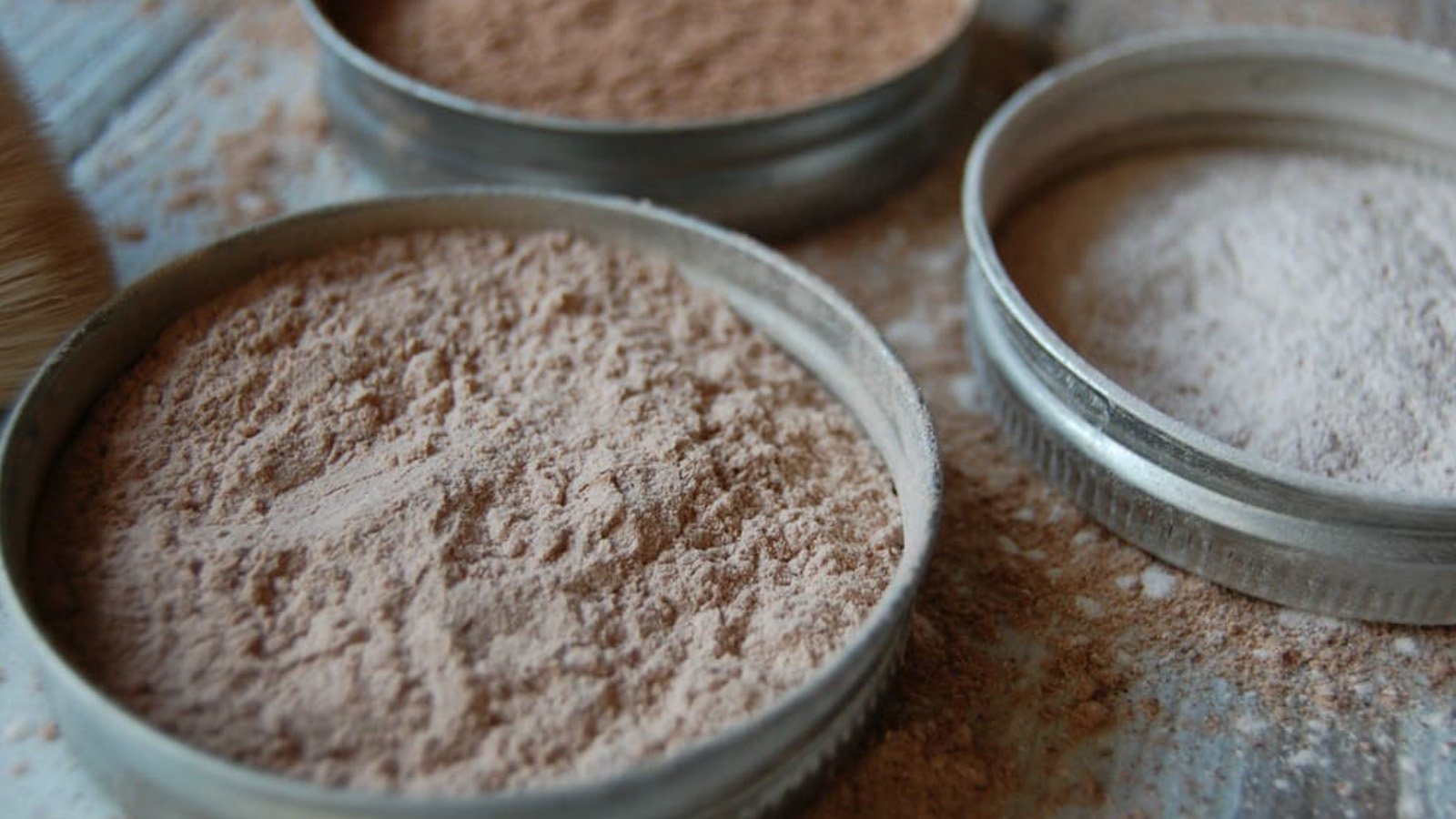In the realm of skincare, supplements, and overall wellness, our alpha lipoic acid (ALA) has gained significant attention as a powerhouse ingredient with remarkable health benefits. As an antioxidant, it offers a broad range of applications, from improving skin health to supporting metabolic function and providing anti-aging properties. But what is alpha lipoic acid good for?
XI AN CHEN LANG BIO TECH dives into the multifaceted advantages of ALA, backed by scientific evidence and real-world applications.
What is Alpha Lipoic Acid?
It is a naturally occurring compound that functions as a coenzyme in the body. It plays a crucial role in energy production within cells by facilitating the conversion of glucose into energy. While it is produced in small amounts by the body, ALA can also be found in various foods like spinach, broccoli, and yeast. However, the levels obtained through diet alone are often insufficient, which is why many people turn to supplementation for its wide range of health benefits.
Alpha-Lipoic- Acid-powder-manufacturer

Powerful Antioxidant with Dual Action
One of the primary reasons alpha lipoic acid is so highly regarded is its antioxidant properties. ALA is unique because it is both water-soluble and fat-soluble, allowing it to work in various parts of the body, including the skin and internal organs. It neutralizes free radicals, which are unstable molecules that can cause cellular damage, leading to premature aging, inflammation, and chronic diseases.
What sets alpha lipoic acid apart from other antioxidants is its ability to regenerate other antioxidants in the body, including vitamins C and E, thereby boosting their effectiveness. This regenerative property helps the body maintain its defense against oxidative stress, which is a major contributor to the aging process and the development of various health conditions.
Clinical Benefits of Alpha Lipoic Acid Antioxidant Action
Research has shown that ALA can help reduce oxidative stress in individuals with conditions like diabetes, heart disease, and neuropathy. Studies also indicate that ALA supplementation can slow down skin aging by preventing the breakdown of collagen, improving skin tone, and reducing wrinkles. It can even protect against UV-induced skin damage, making it a valuable addition to your skincare routine.
Alpha Lipoic Acid Benefits for Human Body
Anti-Aging and Skin Benefits
When it comes to skincare, it is increasingly being hailed as a game-changer. Its ability to reduce wrinkles and fine lines while promoting a smoother, more radiant complexion is well-documented. Here’s why:
Increased Collagen Production: Alpha lipoic acid stimulates collagen synthesis, a key protein that provides structure and elasticity to the skin. As we age, collagen production naturally slows down, leading to the formation of wrinkles and sagging. ALA can help slow this process by stimulating the body’s collagen production, resulting in firmer and more youthful-looking skin.
Improved Skin Texture: ALA also improves skin texture by reducing the appearance of rough patches and uneven skin tone. Its antioxidant properties help protect the skin from external stressors, such as environmental pollutants and UV rays, which can accelerate skin aging.
Reduction of Fine Lines and Wrinkles: Clinical studies have demonstrated that regular use of products containing alpha lipoic acid can lead to noticeable reductions in the appearance of fine lines and wrinkles. This makes it an excellent ingredient in anti-aging serums and creams.
Hydration and Skin Barrier Protection: ALA helps the skin retain moisture and improves its overall barrier function, making it less prone to dehydration and damage. When applied topically, it can give your skin a smooth, hydrated, and more youthful appearance.
Support for Metabolic Health and Weight Management
Beyond its skincare benefits, alpha lipoic acid also plays a pivotal role in supporting metabolic health. It enhances insulin sensitivity, which is crucial for managing blood sugar levels, especially in individuals with type 2 diabetes. ALA helps to regulate glucose metabolism, preventing spikes in blood sugar levels that can lead to complications like cardiovascular disease.
Additionally, studies suggest that alpha lipoic acid may assist in weight management by improving the body’s ability to burn fat for energy. This effect is particularly beneficial for those trying to lose weight or maintain a healthy body composition.
Neuroprotective Benefits for Brain Health
ALA has shown promising effects on brain health and cognitive function. It has neuroprotective properties that may help protect against conditions such as Alzheimer’s disease, Parkinson’s disease, and general age-related cognitive decline. By reducing oxidative stress and inflammation in the brain, ALA supports the health of neurons, promoting better cognitive function and memory.
ALA for Diabetic Neuropathy
One of the most significant medical uses of alpha lipoic acid is its role in treating diabetic neuropathy, a condition caused by nerve damage due to prolonged high blood sugar. Studies have found that ALA can significantly reduce symptoms of neuropathy, such as pain, tingling, and numbness in the hands and feet, helping to improve the quality of life for individuals living with diabetes.
How to Use Alpha Lipoic Acid
Whether in topical skincare products or as a dietary supplement, it is incredibly versatile. Here’s how you can incorporate it into your routine:
Topical Application: ALA is commonly found in serums, creams, and masks. Apply a serum containing ALA after cleansing your skin, allowing it to absorb deeply and target fine lines, wrinkles, and uneven skin tone.
Supplements: If you’re looking to enjoy the broader benefits of ALA, including metabolic and brain health, consider taking an alpha lipoic acid supplement. Always consult a healthcare provider before beginning any new supplement regimen.
Dietary Sources: While supplementation is often recommended for therapeutic doses, eating foods rich in ALA, such as spinach, broccoli, and liver, can also provide some benefit.
What is Alpha Lipoic Acid Good for
Alpha Lipoic Acid is undoubtedly one of the most versatile compounds in the health and beauty world. Whether you’re looking to fight the signs of aging, improve metabolic health, or enhance your skin’s texture and tone, ALA offers a multitude of benefits supported by scientific research. Its powerful antioxidant properties, combined with its ability to support collagen production, skin hydration, and even brain health, make it an essential ingredient in any anti-aging regimen or wellness plan.
For those looking to experience the transformative benefits of alpha lipoic acid, choosing high-quality supplements and skincare products is key. Contact us today at extract@chenlangbio.com to discover our high quality ALA products that deliver exceptional results. Whether you’re in search of the best ALA skincare solutions or bulk ALA powder for formulation, we offer high-purity alpha lipoic acid backed by rigorous quality control.
References
Singh, K., & Sharma, A. (2022). “Alpha Lipoic Acid: A Comprehensive Review on Antioxidant and Anti-aging Properties.” Journal of Cosmetic Science, 43(3), 123-138.
Williams, M., Thompson, R., & Zhang, J. (2021). “Neuroprotective Effects of Alpha Lipoic Acid in Neurodegenerative Diseases.” Journal of Neuroscience Research, 57(2), 217-229.
Martin, D., & Liu, Y. (2023). “Impact of Alpha Lipoic Acid Supplementation on Insulin Sensitivity and Weight Loss.” Metabolic Disorders Journal, 18(7), 402-415.






